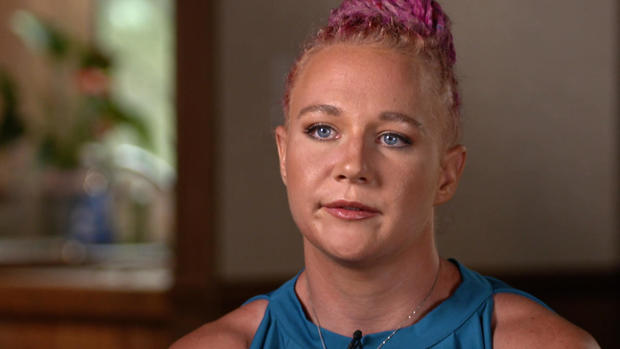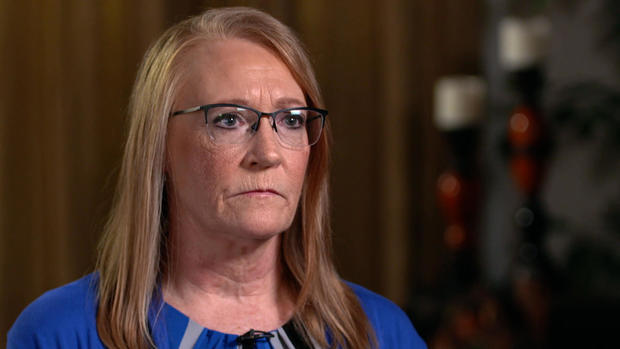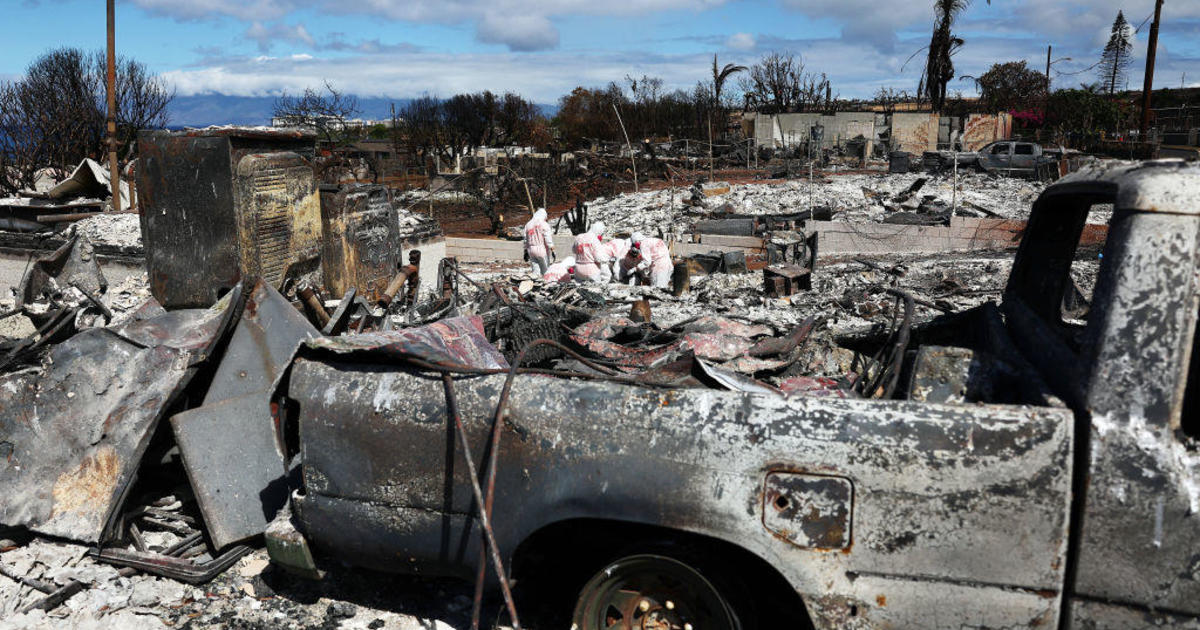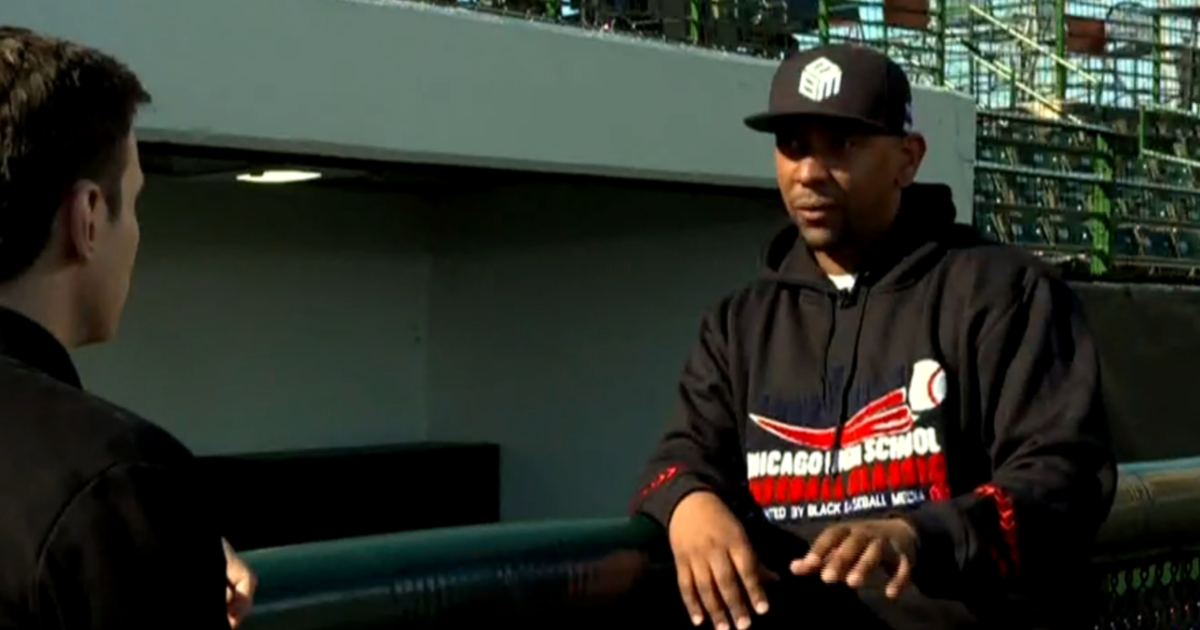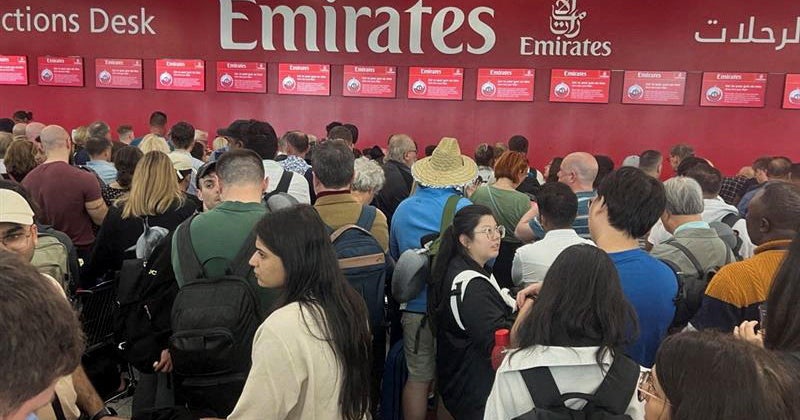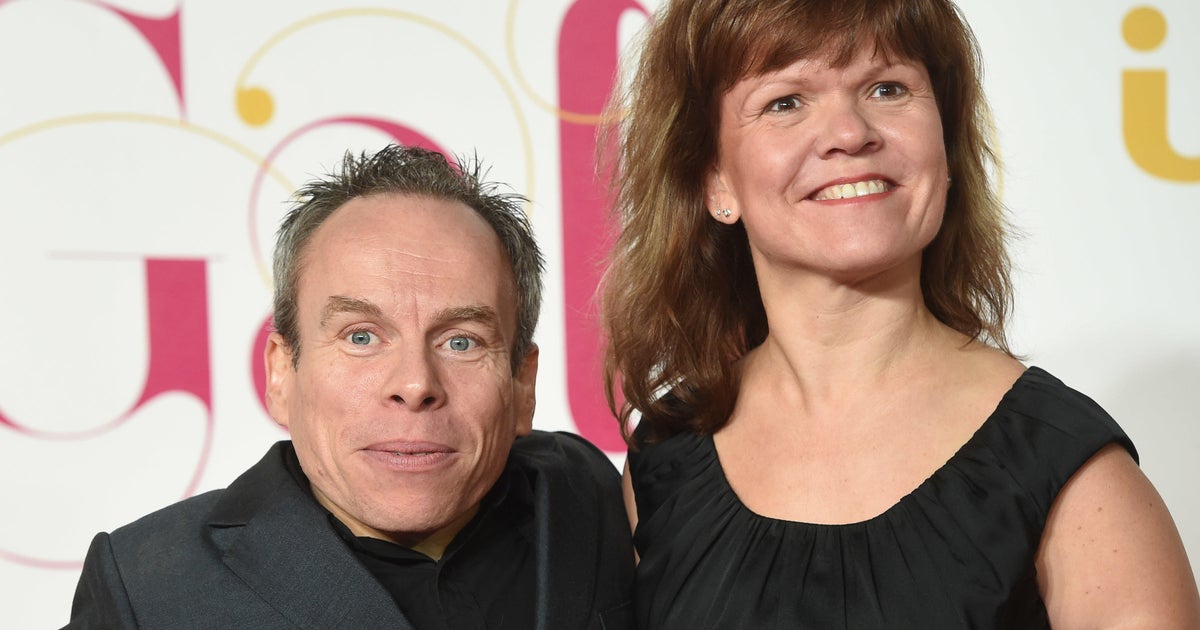"I am not a traitor": Reality Winner explains why she leaked a classified document
A story about someone named Reality Winner has to start with the name. Her father, playing on the family name, explained he wanted "a real winner." And so, Reality. Maybe that still doesn't make sense, but it is the least baffling fact in this story. Reality Winner became an infamous name in 2017 when she was accused of espionage. She was hit with the longest sentence ever imposed on a civilian for leaking classified information to the media. Now released, she spoke with us. Did Reality Winner do "exceptionally grave damage" as the prosecutors said? Or did she reveal a truth that defended America? It's complicated —like the young woman with the unforgettable name.
Reality Winner: I am not a traitor. I am not a spy. I am somebody who only acted out of love for what this country stands for.
We met 30-year-old Reality Winner, at home in Texas, after four years behind bars. 'Espionage' seemed surprising for a woman who joined the Air Force at 19 and won the Air Force Commendation Medal, in 2016, for "600 enemies killed in action." She did that as a linguist in a combat unit fighting secret missions.
Scott Pelley: How many languages do you speak?
Reality Winner: Farsi, Dari, and Pashto.
Scott Pelley: These are the languages of Afghanistan and Iran.
Reality Winner: Yes.
But her duty station was 7,000 miles away from those countries, at Fort Meade, Maryland.
Scott Pelley: Why are you at Fort Meade?
Reality Winner: I'm not… Am I allowed to say that?
Lawyer (off camera): Nope.
Reality Winner: Nope
That's the voice of her lawyer, who helped her steer clear of secrets in our interview. Winner wouldn't say it, but at Fort Meade, linguists eavesdropped on communications in Afghanistan to identify targets for armed drones.
Reality Winner: It is not something I am allowed to discuss.
She didn't discuss her mission with her mother, Billie Winner-Davis.
Billie Winner-Davis: Only one conversation that I had with her did she ever let on how heavy her work was. I'll never forget, because she said, "You know, when you're watching somebody on your screen and that person goes 'poof,' you've gotta make sure that you've got everything right."
Reality Winner: I was starting to see in the news that our mission had a very high civilian casualty rating.
She began to feel guilt, while battling illness—depression and the eating disorder, bulimia. She left the Air Force for a top secret civilian job at the National Security Agency at Fort Gordon in Augusta, Georgia. But, here, in 2017, she says, what she was hearing in English worried her far more than intercepts in Farsi and Pashto.
President Trump: If you don't catch a hacker, okay, in the act, it's very hard to say who did the hacking.
The president was raising doubt that Russia attacked the 2016 election. His interview with John Dickerson was typical of the time.
President Trump: I'll go along with Russia, could have been China, could've been a lot of different groups.
But it was Russia and the NSA knew it. Reality Winner had seen proof in a top secret report on an in-house newsfeed.
Reality Winner: I just kept thinking, "My God, somebody needs to step forward and put this right. Somebody."
The secret report said, in 2016, the Russian military "executed cyber espionage" against "122… local government organizations" "targeting officials involved in the management of voter registration systems." It was top secret, in part, because it revealed what the U.S. knew about Russian tactics. Winner told us she was exposing a White House cover up. She printed the report, dropped it in this mailbox, addressed anonymously to an online news source that specialized in government wrongdoing. The NSA report was published a month later.
Scott Pelley: You knew it was stamped "Top Secret." You knew what that meant.
Reality Winner: I knew that. I knew it was secret. But I also knew that I had pledged service to the American people. And at that point in time, it felt like they were being led astray.
Winner was caught as soon as the top secret report surfaced. The NSA could see on its network that she printed it. She drove home to a new reality.
Reality Winner: A plain black sedan came up behind my car and two men in polo shirts came out and introduced themselves as FBI agents.
A transcript shows the FBI agents told her the interrogation was "voluntary." And they didn't mention her right to an attorney. Winner lied about mailing the report, then confessed and was arrested. The government hit her with the most serious possible charge, espionage. Bail was denied after prosecutors told a judge that Winner wrote in her diary that she was mad enough to "burn the White House." They suggested she might defect to the Taliban. To the public, they said this.
U.S. Attorney Bobby L. Christine: Winner's willful, purposeful disclosure caused exceptionally grave damage to U.S. national security.
But what prosecutors called grave damage was a bombshell of truth to the Federal Election Assistance Commission, which helps secure the vote. In hours, the commission issued an alert on the "NSA document leak." It spelled out the top secret email addresses "utilized by the attackers." And urged officials to "check email logs." Blindsided by Winner's revelation, the commission called for "full disclosure of election security intelligence." Two former officials told us, Reality Winner helped secure the 2018 midterm election.
Scott Pelley: One of the things that you learned about the espionage charge is that in court you're not allowed to talk about what you leaked or why you leaked it. What would you have told the judge?
Reality Winner: That I thought this was the truth. But also, did not betray our sources and methods. Did not cause damage. Did not put lives on the line. It only filled in a question mark that was tearing our country in half in May 2017. And that I meant no harm.
But there was harm, for her. As her case dragged on 16 months. She says depression was consuming her. Her mother moved from Texas to Augusta to be with her daughter.
Reality Winner: There would just be times when it almost wasn't worth it to see the end of this. And so--
Scott Pelley: You had thoughts of taking your own life?
Reality Winner: Yes. I started to plan my suicide. And I would do practice runs. The only thing that was stopping me was my mom. 'Cause she was still in Augusta. My dad had gone back to Texas to go to work And I just refused to let her hear that news by herself. So, I would get on the phone and just try to talk around it and, "hey there's no need to stick around. Visitation's not worth it. Go back to Texas, just go. Just go."
Her mother, Billie, heard that—while sitting in on our interview with her daughter.
Scott Pelley: Reality told us that she was planning to kill herself.
Billie Winner-Davis: I heard that. Yeah.
Scott Pelley: Did you know she was in that much trouble?
Billie Winner-Davis: I mean, there were some very dark days. But then they would be followed by a better day. I just knew, when I was there in Georgia, I couldn't leave. I couldn't leave her.
In 2018, at the age of 26, Winner pleaded guilty. The judge said he would make an example of her—she served four years behind bars, plus three, now, answering to a probation officer. She still can't talk about the case.
Reality Winner: I've had four years of just trying to say I'm not a terrorist. I can't even begin to talk about my actual espionage indictment. Or have a sense of accomplishment in having survived prison. Because I'm still stained by them accusing me of being the same groups that I enlisted in the Air Force to fight against. So I don't let myself feel anything regarding the actual act or the charge. Until I can let it be known that I'm not what they said I was.
She served her sentence during prison lockdowns for COVID and the unrest after the police murder of George Floyd. In a cell with two companions -- depression and bulimia -- she became self destructive.
Reality Winner: You know, every time that I had to give in to my illness, I put it on my body. I cut myself. Everywhere. I couldn't leave my cell. I couldn't work out. And all I could do was ask why and ask why. And a chaplain walked by. And I asked him why they were doing this to us and that same chaplain that I had seen for two years looked me in my face and said, "Nobody gives a f**k about y'all in here." I started getting high that day. Everyone knows there's drugs in prison. I was reduced to bingeing and purging. Getting high every day. And cutting myself.
Scott Pelley: Have you been able to get clean?
Reality Winner: I have. I just am ashamed to say how hard it is.
It's worth noting how inconsistent the government is in these cases.
In 2008, Gregg Bergersen, a Pentagon employee, was convicted of selling secrets to the Chinese. He was seen in FBI surveillance getting his pocket stuffed with cash. His sentence was six months shorter than Reality Winner's. In 2012, former Army general and CIA Director David Petraeus gave notebooks of top secret information to an author who was his mistress. He was charged with misdemeanor mishandling of classified information and never spent a minute in jail.
Scott Pelley: Was it worth it?
Reality Winner: I try so hard not to frame things as being worth it or not worth it. What I know is that I'm home with my parents. And we take our lives every day moving forward as being richer in knowing what to be grateful for.
Grateful, for the moment of her prison release. We said this story is complicated. On the one hand individuals can't be deciding what to declassify. On the other, somethings are classified to conceal wrongdoing—torture in the war on terror for example. In a home in Texas, one mother has simplified the story her way: with a portrait of a veteran and a display of a commendation for meritorious service to her country.
Billie Winner-Davis: What Reality did was not espionage. What Reality did was patriotism. She actually stood up and worked for the American people to give us the truth about an attack on our vote, an attack on our democracy, an attack on our country. And I'm very proud of her for that.
Produced by Henry Schuster and Sarah Turcotte. Broadcast associate, Michelle Karim. Edited by Sean Kelly.
